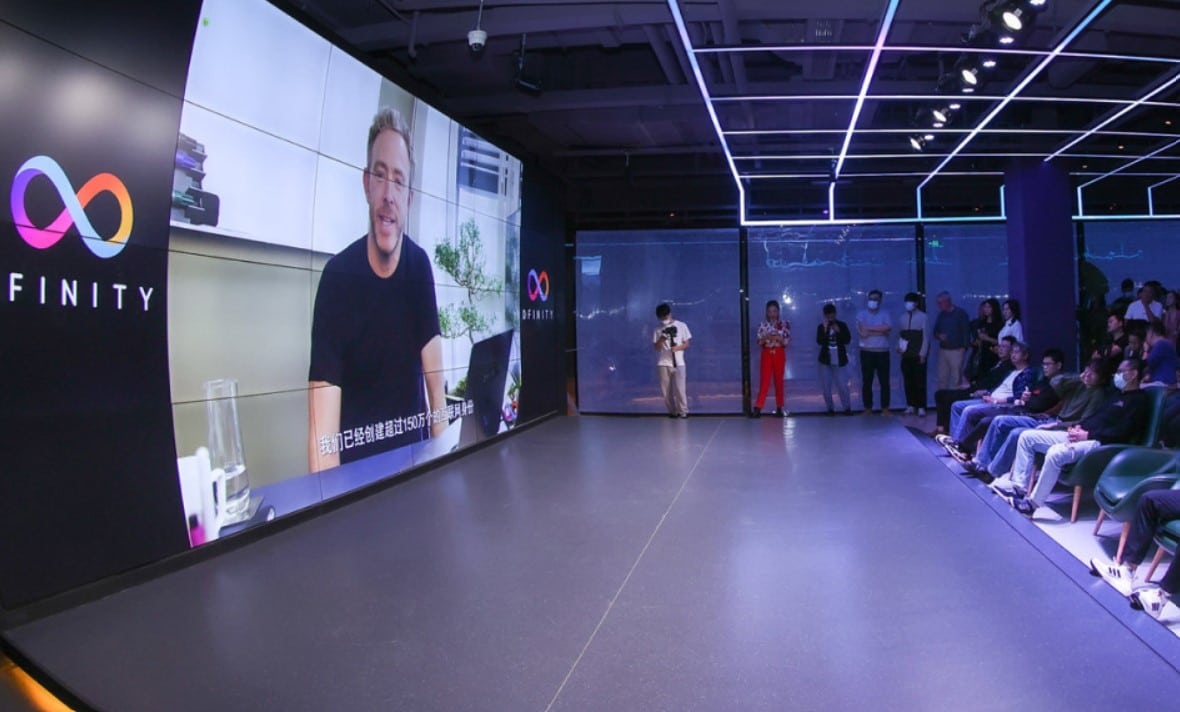The DFINITY Foundation is a not-for-profit organisation contributing to the development of the Internet Computer (IC) project. IC is a web-speed, internet-scale public blockchain advanced smart contract functionality to the world’s largest cryptocurrency Bitcoin.
“The Internet Computer can now serve as a Layer 2 for Bitcoin where smart contracts on the Internet Computer can hold, send and receive Bitcoin natively, without the need for blockchain bridges or other third parties. This provides a trustless foundation for various DeFi and Web3 applications seeking to code Bitcoin,” IC said.
Now, the world’s most popular cryptocurrency can be used for DeFi activities like yield farming, lending, payments and more. This can be achieved through the Internet Computer’s enhanced Chain-key cryptography. The direct integration with Bitcoin obliviates bridged and wrapped Bitcoin, a technique typically used to facilitate interaction between different blockchains, and one that is error-prone and often hacked.
“Blockchains are like walled gardens, incapable of interaction between one another. When this comes to Bitcoin, applications, such as DeFi applications, that could benefit most from interacting with the world’s largest cryptocurrency do not have the ability to do so. The Internet Computer’s integration with Bitcoin is a true game-changer for the industry, finally bringing smart contract functionality to Bitcoin and enabling a whole new landscape of DeFi and dapp (decentralised applications) development never before possible using BTC. We are incredibly excited to see how developers interact with this revolutionary functionality,” Manu Drijvers, Director of Engineering at the DFINITY Foundation, said.
To enable fast Bitcoin transactions between smart contracts on the Internet Computer, the DFINITY foundation is currently working on Chain-Key Bitcoin (ckBTC). CkBTC will act as a local ledger facilitating fast transactions with low fees and only settle transactions on the Bitcoin network when necessary.
The Internet Computer’s integration with Bitcoin also provides a more secure alternative to centralised bridges in the form of threshold ECDSA (Elliptic Curve Digital Signature Algorithm). The implementation of ECDSA empowers the Internet Computer’s canister smart contracts, to directly conduct Bitcoin transactions without an intermediary or bridge. This provides a trustless foundation for DeFi projects using Bitcoin and enables IC developers to code natively on Bitcoin.
“Making Bitcoin programmable will increase the overall potential of blockchain technology. Unlocking Bitcoin’s unmatched liquidity will bring enormous benefits and new possibilities for users and developers across a wide range dapps including DeFi, GameFi, SocialFi, and NFTs. This direct integration also eliminates the Achilles’ heel of other approaches to make Bitcoin available on other networks such as wrapping and bridging. Unfortunately, we have seen the drawbacks of these solutions over the past year through a number of high-profile hacks, leaving networks hopelessly vulnerable to attacks. Bitcoin lending via decentralised exchanges, for example, is now possible with security superior to what is available on any other platform thanks to the Internet Computer’s direct and trustless integration, making it a natural choice for DeFi developers,” Jan Camenisch, Chief Technology Officer at the DFINITY Foundation, said.
The Internet Computer overcomes the limitations of traditional blockchains and smart contracts for better speed, storage costs, security, and scalability, offering Web2 performance on an infinite Web3 platform.
The foundation runs community developer grants and a vibrant educational community around their technology. The DFINITY Developer Grant Program aims to catalyse the growth of the Internet Computer ecosystem and make the Internet Computer accessible and approachable to more developers around the world by providing support to promising developers and teams.
“Our aim is to support the reimagination of all systems and services in new forms using smart contracts on an infinite public blockchain, and nothing else. What the world now builds to take advantage of blockchain’s new capabilities shall be an important and fascinating next chapter,” Dominic Williams, the founder of Dfinity, said.







Click here to change your cookie preferences